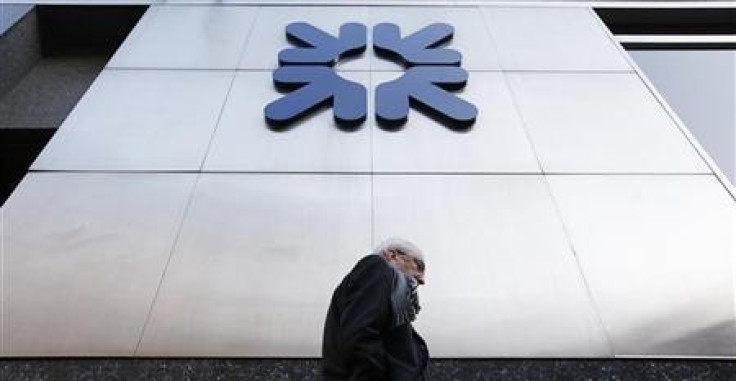RBS Finance Director Nathan Bostock Resigns After 10 Weeks to Join Santander

The Royal Bank of Scotland has revealed that its finance director Nathan Bostock has resigned, after just 10 weeks into the job, to join Spanish group Santander.
RBS said in a brief statement late Monday evening that Bostock notified the board of his intention to resign and would formally resign soon.
Bostock previously held several positions, including chief financial officer, at Santander and was only appointed to his RBS role on 1 October.
Santander also confirmed that Bostock would be named chief risk officer and deputy CEO of its UK arm, which the bank plans to spin off and separately list on the London Stock Exchange.
The high profile departure is the latest in a long line of problems that the 81% state-owned lender has had to face in 2013.
The European Commission fined RBS along with seven other banks a combined total of €1.71bn (£1.4bn, $2.4bn) for operating in two cartels in the euro and Japanese yen interest rate derivatives markets.
RBS alone was slapped with €391m in fines for its bankers' roles in the cartels.
It follows a £390m fine settlement for Libor fixing from UK and US regulators in February, as well as millions more in fines and litigation costs for the mis-selling of derivatives to small businesses and Payment Protection Insurance (PPI) to consumers.
Meanwhile, the Serious Fraud Office may be laying the ground work for a criminal investigation into the RBS after a government adviser claimed the bank engineered businesses into default while profiting from their struggles.
RBS's CEO Ross McEwan denied the bank had committed any wrongdoing but drafted in magic circle law firm Clifford Chance to conduct an 'independent internal review' to look into Lawrence Tomlinson's allegations.
Only a few days after this issue, RBS revealed that it will compensate customers who were affected by the mass outage to its online and phone banking services, which potentially left millions of people unable to purchase goods or receive payments, echoing the debacle in 2012.
Only a couple of days after this statement, RBS's Natwest banking systems were hit again but this time by a distributed denial of service attack (DDoS).
A DDoS attack seeks to disrupt websites and other computer systems by flooding the targeted organisations' networks with computer traffic.
© Copyright IBTimes 2024. All rights reserved.







